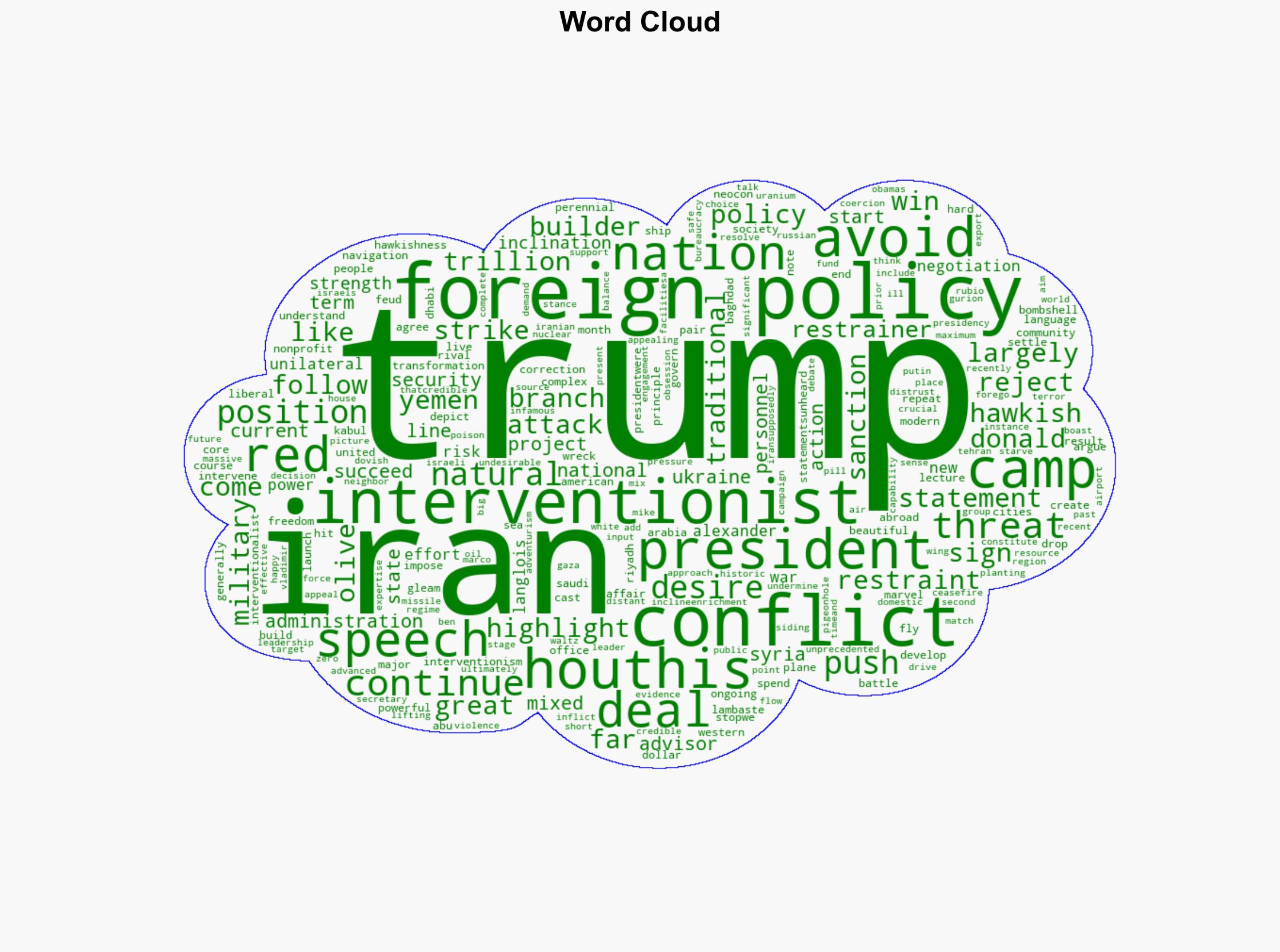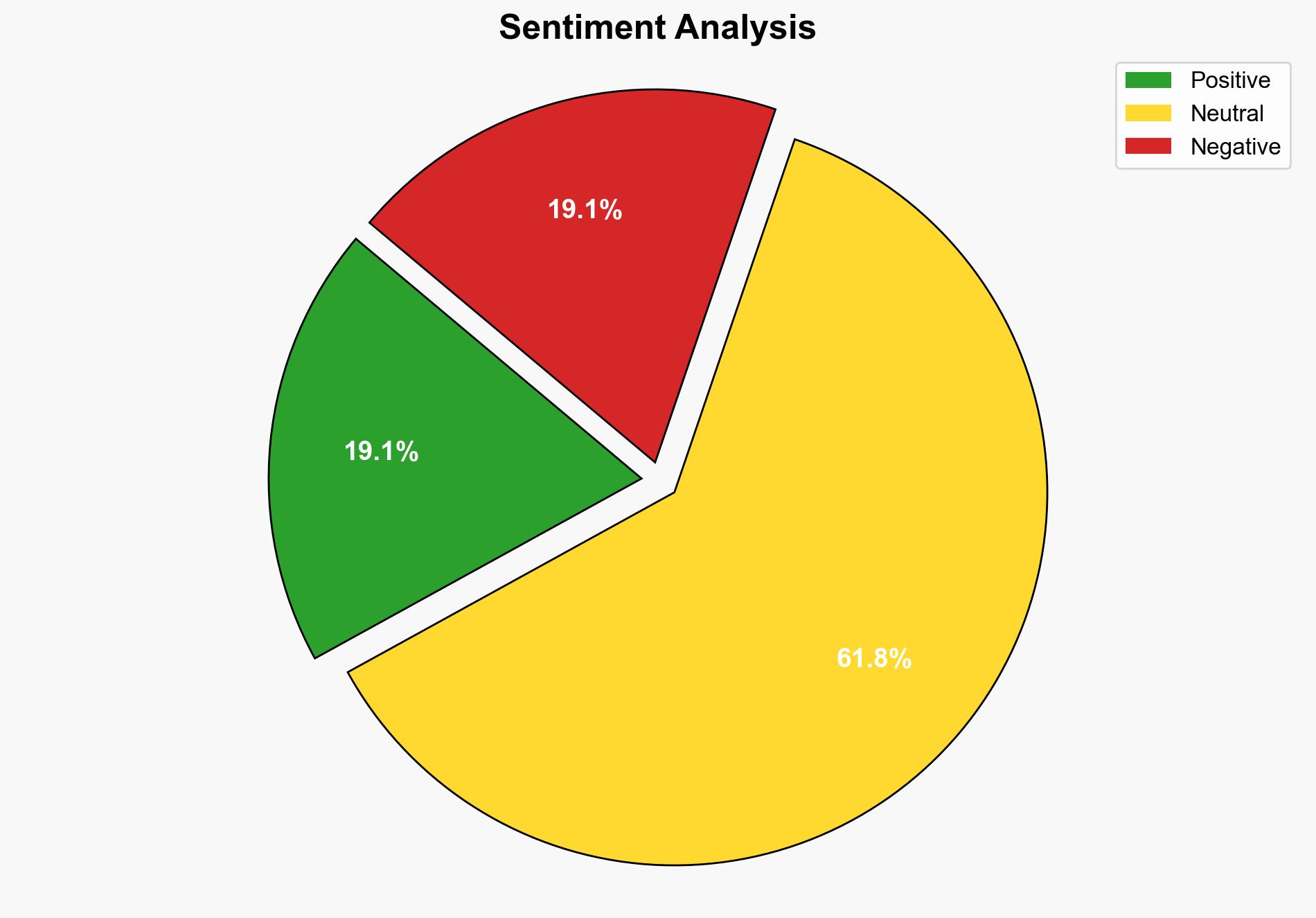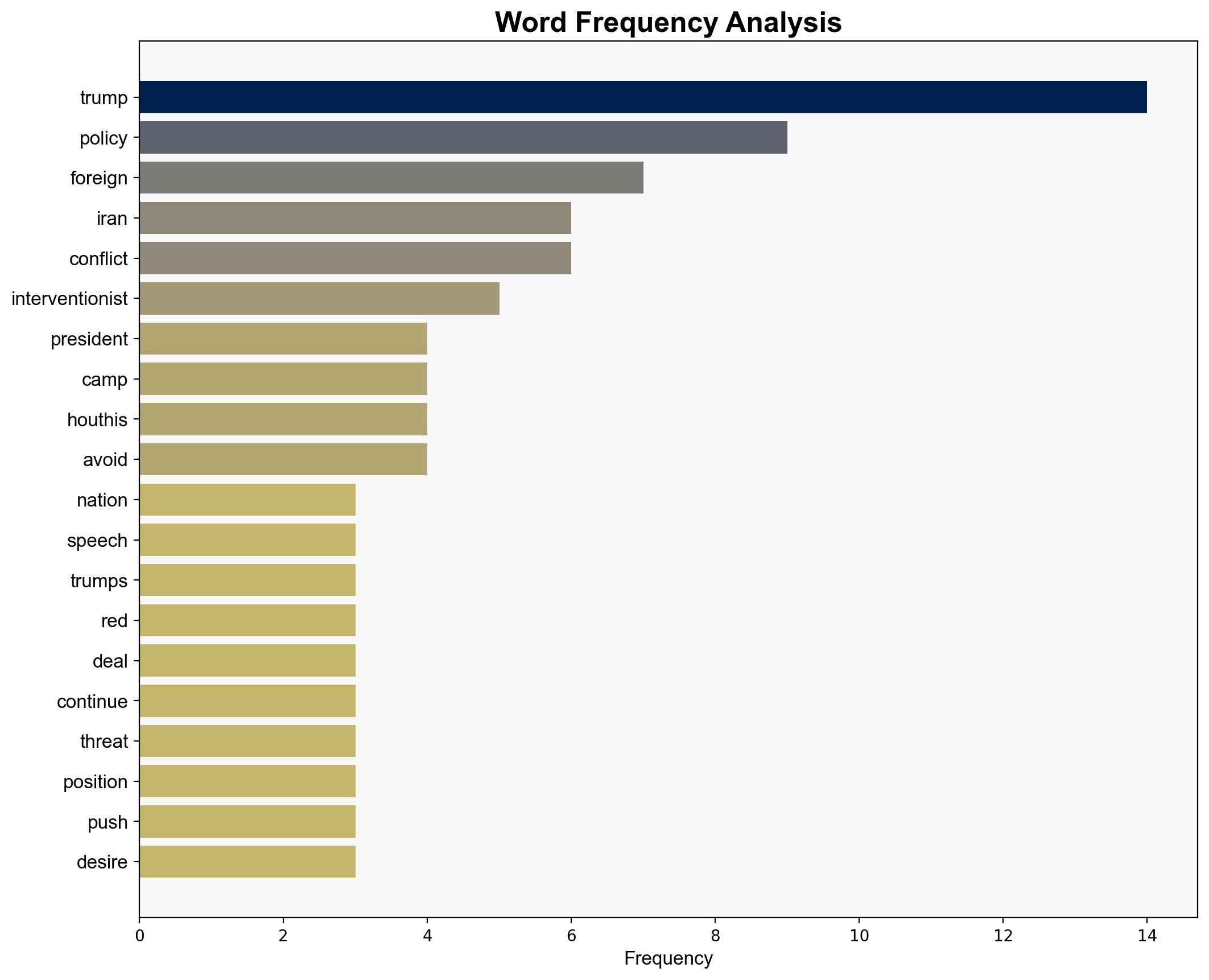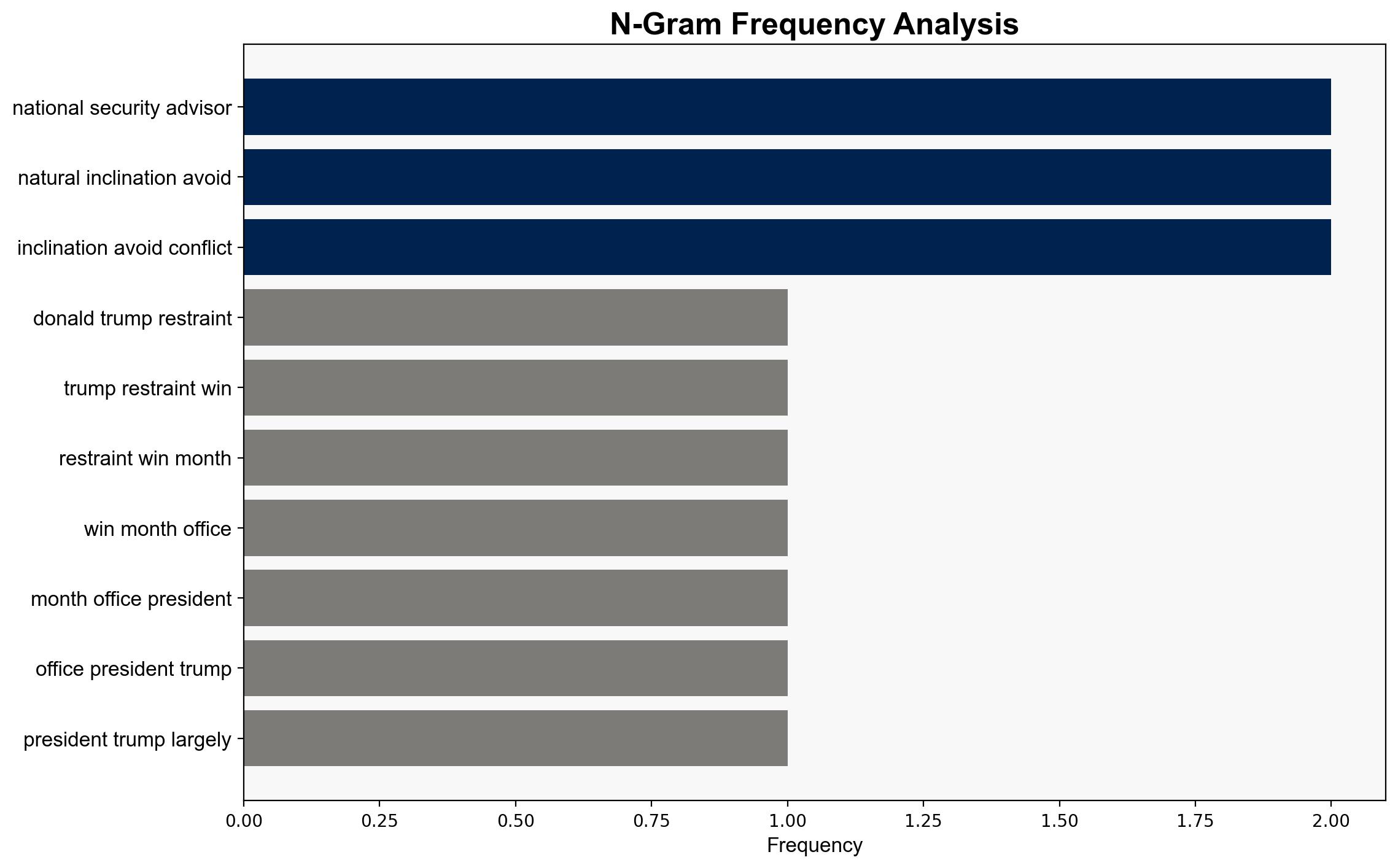Under Donald Trump Restraint Is Winning – The National Interest
Published on: 2025-06-04
Intelligence Report: Under Donald Trump Restraint Is Winning – The National Interest
1. BLUF (Bottom Line Up Front)
The report highlights a strategic shift in U.S. foreign policy under Donald Trump, characterized by a preference for restraint over interventionism. Despite traditional hawkish rhetoric, Trump’s administration has shown a tendency to avoid new military conflicts, focusing instead on diplomatic engagements and economic sanctions. This approach has led to mixed outcomes, with significant implications for U.S. relations with Iran, Russia, and other key global players.
2. Detailed Analysis
The following structured analytic techniques have been applied to ensure methodological consistency:
Causal Layered Analysis (CLA)
Surface events indicate a reduction in direct military interventions. Systemic structures reveal a balancing act between hawkish advisors and Trump’s inclination for restraint. Worldviews within the administration are divided, with some advocating for strength through diplomacy and others for traditional military power. The myth of American interventionism is being challenged by a narrative of strategic restraint.
Cross-Impact Simulation
The restraint approach impacts regional stability, particularly in the Middle East. Reduced military presence may embolden adversaries like Iran, while diplomatic efforts could foster new alliances. Economic sanctions continue to pressure adversaries, potentially leading to unintended regional economic disruptions.
Scenario Generation
– Best Case: Successful diplomatic resolutions in Iran and Ukraine, leading to enhanced global stability.
– Worst Case: Increased regional tensions due to perceived U.S. withdrawal, leading to conflicts in the Middle East and Eastern Europe.
– Most Likely: Continued mixed approach with selective engagement, balancing sanctions and diplomacy.
3. Implications and Strategic Risks
The shift towards restraint poses risks of regional power vacuums, particularly in the Middle East. Cybersecurity threats may increase as adversaries exploit perceived U.S. disengagement. Economically, sanctions could lead to retaliatory measures affecting global markets. Militarily, the U.S. may face challenges in maintaining deterrence without direct intervention.
4. Recommendations and Outlook
- Enhance diplomatic channels to mitigate regional tensions, particularly with Iran and Russia.
- Strengthen cybersecurity measures to counter potential threats from adversaries exploiting reduced military presence.
- Monitor economic impacts of sanctions to adjust strategies and prevent global market disruptions.
- Scenario-based projections suggest maintaining a flexible approach to adapt to evolving geopolitical landscapes.
5. Key Individuals and Entities
Donald Trump, Mike Waltz, Marco Rubio, Vladimir Putin
6. Thematic Tags
national security threats, cybersecurity, counter-terrorism, regional focus




